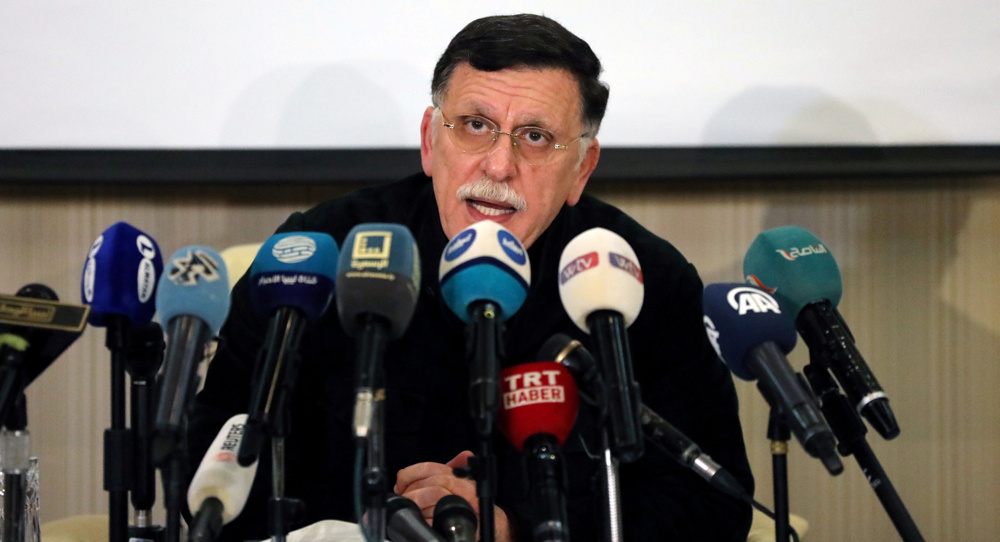Libya’s Prime Minister Sarraj says will resign by end of next month
Prime Minister Fayez al-Sarraj of Libya’s internationally-recognized government says he will step down by the end of next month, amid efforts to find a solution to the North African country’s years-long political conflict.
“I declare my sincere desire to hand over my duties to the next executive authority no later than the end of October,” Sarraj said in a televised speech on Wednesday.
The 60-year-old prime minister cited the work of United Nations (UN)-brokered peace talks in Geneva and said progress had been made in efforts to unify Libya’s fragmented state and prepare for elections.
Since 2014, two rival seats of power have emerged in Libya, namely the internationally-recognized government led by Sarraj, and another group based in the eastern city of Tobruk, supported militarily by Libyan rebels under the command of a military strongman named Khalifa Haftar.
International attempts to bring about peace between the two warring sides have repeatedly failed. But the rivals agreed during talks in Geneva earlier this month to hold elections within 18 months and restructure the government.
Sarraj did not explain why he had decided to resign, but his government has been under pressure amid protests against deteriorating living standards, in large part caused by a rebel blockade of energy exports since the beginning of the current year. The blockade has cost the Libyan government 6.5 billion dollars in lost revenue.
In the capital, the unrest fed tensions between Sarraj and the influential interior minister, Fathi Bashagha, whom the prime minister briefly suspended last month over his alleged poor handling of the protests before restoring him to the post.
On Tuesday, Bloomberg had cited unnamed officials as saying that Sarraj would be announcing his resignation by the end of the week.
Protests, meanwhile, have also been staged in rebel-held territory.
Sarraj’s resignation could potentially lead to infighting among other senior government figures, and between armed groups from the capital and from Bashagha’s coastal city of Misrata, who wield control on the ground.
Libya, which sits atop the largest oil reserves in Africa, initially plunged into chaos in 2011, when a popular uprising and a NATO intervention led to the ouster of long-time dictator Muammar Gaddafi.
VIDEO | Iran’s Leader receives eulogists on Hazrat Fatima birth anniv.
VIDEO | Israel continues to bomb Gaza homes
‘All wars have rules. All of those rules have been broken’ by Israel
VIDEO | Report flags India’s violation of rights of Rohingya detainees
Turkey's foreign minister meets Syria's de facto leader in Damascus
VIDEO | US Syria plots
'Next to impossible' to rescue patients from Gaza's Kamal Adwan Hospital: Director
VIDEO | Vietnam current prosperity















 This makes it easy to access the Press TV website
This makes it easy to access the Press TV website